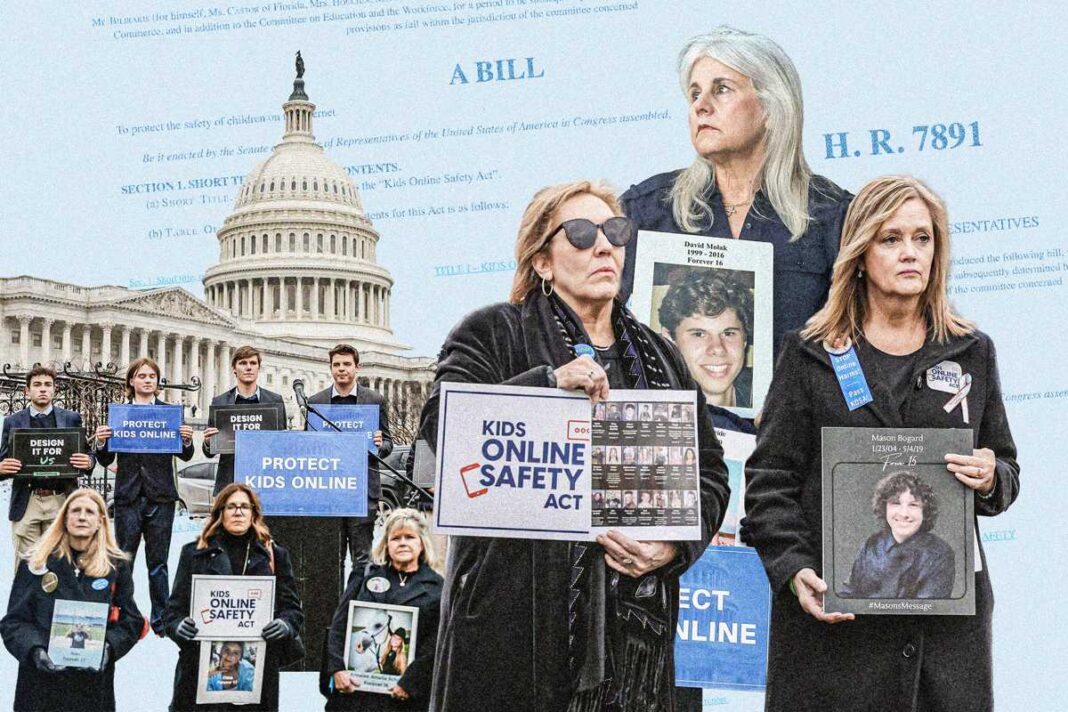
Bipartisan group of lawmakers gets behind the Kids Online Safety Act, which requires social media companies to prevent the spread of harmful content.
Maurine Molak has spent the past eight years advocating for online safety for children.
A year after her son David died by suicide due to cyberbullying in 2016, she pushed for a new law, also known as “David’s Law,” in her home state of Texas.
It makes cyberbullying a criminal offense and allows victims to seek injunctive relief against social media accounts used to harass or bully minors.
When David’s Law was passed in 2017 in Texas, certain provisions requiring social media companies to prevent anonymous cyberbullying were removed from the bill.
Ms. Molak said she believes this was because of those companies’ lobbying, and she vowed to address the issue on the federal level.
Her latest focus is the Kids Online Safety Act (KOSA), a bill that requires social media companies to take measures to prevent the spread of harmful content, including that related to suicide, eating disorders, bullying, and drugs.
The bill would also require tech companies to allow minors to limit the category of recommendations or opt out of personalized recommendation systems that facilitate infinite scrolling.
In the past 18 months, Ms. Molak has made seven trips to Washington, and she met more than 10 congressional lawmakers during each trip.
The 61-year-old former accountant is fully dedicated to the cause through David’s Legacy Foundation, a charity she founded.
Ms. Molak and a group of mothers who lost their children because of online harms have advocated for KOSA since its 2022 version was introduced in the previous Congress.
They’ve shared their personal stories with legislators, who have shown empathy for the grieving mothers, according to several present at those meetings.
The bill was cleared by the Senate Commerce Committee in December 2023 and is slated to advance out of the House Commerce Committee soon.
Microsoft, social media platform X, and other companies have said they support the legislation.
By Terri Wu






